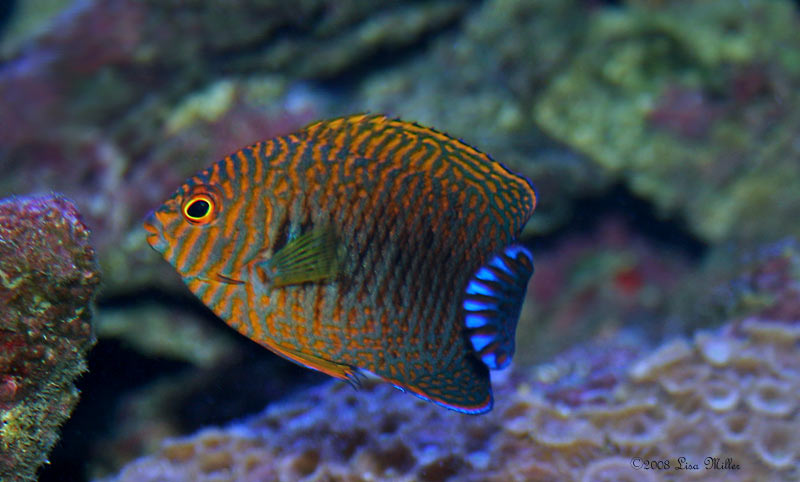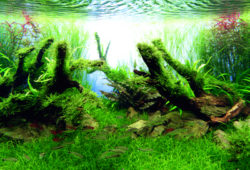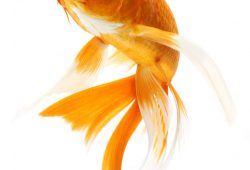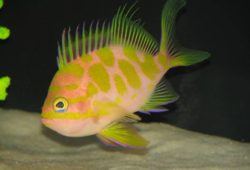Reef-Compatible Versus Reef-Associated Fishes
In the article I’m going to tell you about Reef-Compatible Versus Reef-Associated Fishes.

Contents
Reef Fish Do Not Always Make Reef-Safe Saltwater Aquarium Fish
Most of the fishes commonly offered for sale in the tropical saltwater aquarium hobby are reef fishes, so why are so many of these fishes listed as “not reef-safe” at saltwater aquarium retail stores? This is a question that can be confusing to the novice marine aquarist until he or she understands it’s simply a matter of language.
The Difference between Reef-Associated and Reef-Compatible
When a marine scientist says that a semicircle angelfish (Pomacanthus semicirculatus) is a reef-associated, non-migratory, marine fish, it has a different meaning then when someone like Martin Martin, director of marine ornamental research at Blue Zoo Aquatics, says “This fish is not reef-compatible.” The former refers to the fish’s natural biology, while the latter refers to captive husbandry.
Reef-Associated Fishes
When a fish is said to be “reef-associated” it means that the fish is generally found on or around a reef in the wild. Some saltwater fishes spend their entire lives on one particular portion of one reef, while others may migrate from the reef to the open ocean. Just because a fish is associated with a reef for part or all of its life cycle in the wild, however, does not mean that the fish is recommended for a reef aquarium.
Types of Saltwater Aquaria
In very general terms, marine aquarists keep three types of saltwater aquaria. They are:
- A Fish-Only Aquarium
- An Invertebrate Aquarium
- A Reef Tank
In truth, all three of these aquaria usually house both fish and invertebrates, because, for example, even today’s “fish-only” aquarium is usually a fish-only-with-live-rock (FOWLR) aquarium. As such, most fish-only systems will also house various invertebrates that live in and grow on the live rock. Nonetheless, the aquarist with a fish-only system will not acquire ornamental invertebrates he or she knows have a high likelihood of being killed by the non-reef-compatible fishes housed in the tank.
Invertebrate Tanks
The invertebrate aquarium houses no fishes so that the ornamental invertebrates in the tank can thrive without risk from any fishes. Why not put reef-compatible fishes in an invertebrate tank and call it a reef tank? There are two main reasons:
- Personal Preference
- Fear of Collateral Damage
The latter point—fear of collateral damage—acknowledges that all fishes are individuals, and even so-called reef-compatible fishes may do damage to ornamental corals secondary to their natures. For example, a clownfish attempting to host in a large polyped stony coral may in fact “love that coral to death.” Does this always happen? No, and most clownfishes are indeed reef-compatible, but talk to a marine aquarist that has lost a Goniopora species or even a Euphyllia species secondary to a clownfish, and they will tell you that their clownfish in their system is only reef-compatible with caution.
Reef Compatible with Caution
There are a variety of animals that are commonly listed as “reef-compatible with caution.” This means that many aquarists have had success with this animal in a reef tank, but there are certain invertebrates (e.g., fleshy brain corals or clams with fleshy mantles) on which the fish may pick. Adding any fish to a tank with ornamental invertebrates is a risk, but the level of risk goes up when reef-compatible-with-caution fishes are concerned.
Reef Tanks
In a reef tank, the fishes and other animals are generally selected because they are considered reef-compatible. Reef-compatible animals will generally not harm one another when housed together. This is why saltwater aquarium retailers label reef-associated fishes such as the semicircle angelfish as “not reef safe” or “not reef compatible.” It is simply an artificial designation intended to help aquarists in making the right selection for their acquisitions.



